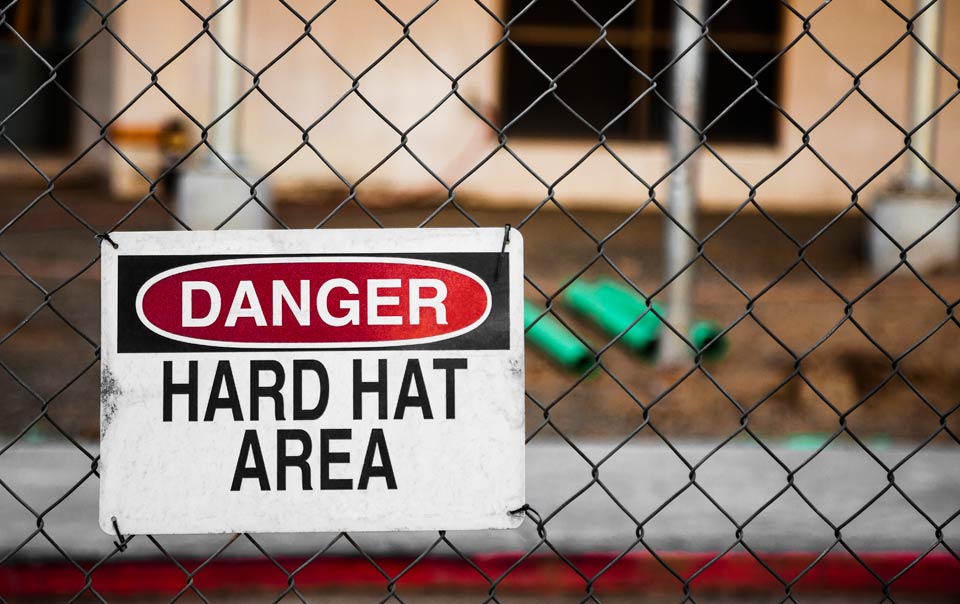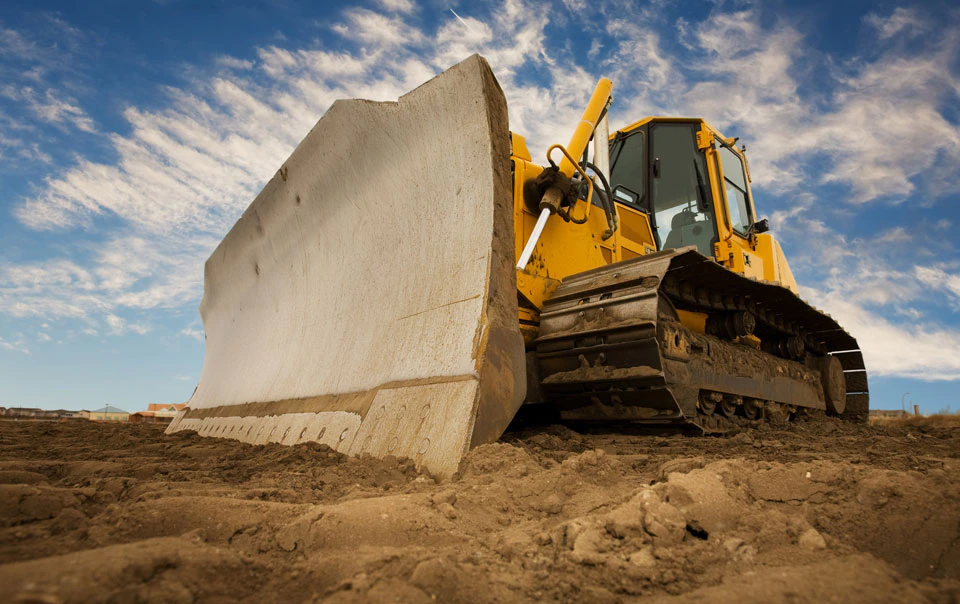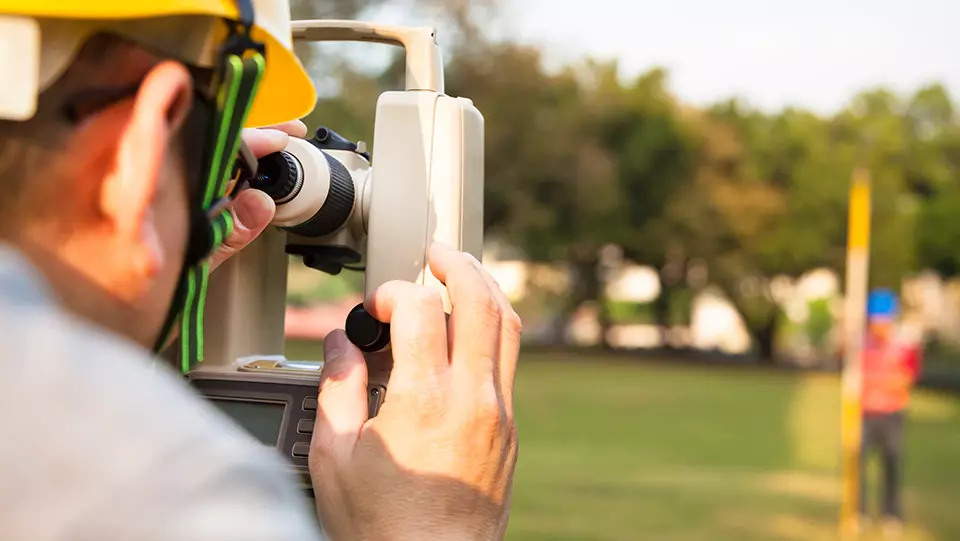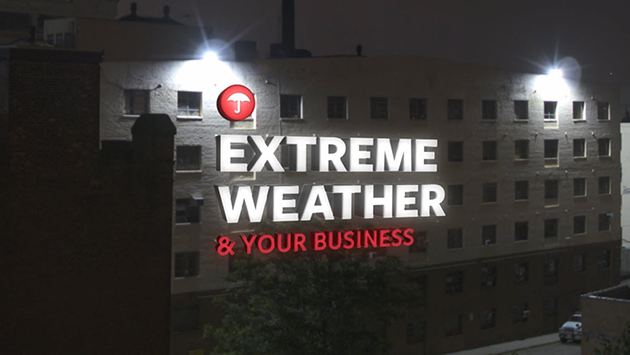Preparing Your Construction Site for Severe Weather

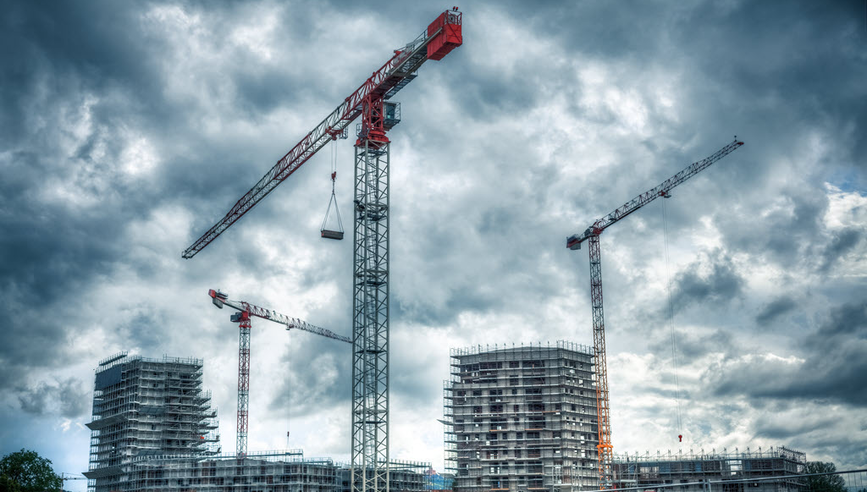
Severe weather events can impact a construction project’s budget, schedule and workforce. A documented and practiced severe weather plan can help contractors prepare for the unexpected and work to prevent losses. Protect your site, workers and project by evaluating site-specific risks, properly securing materials and equipment and putting your severe weather plans into action.
As you develop your severe weather plan, consider the following:
- What weather events or hazards may occur at the location?
- What work activities will be underway during storm season?
- What can be learned from historical storm data?
- Does the site topography increase the potential for localized flooding?
- What are the potential effects on the workforce before, during and after a storm?
- What are the potential effects on site accessibility, emergency response, supplies and power?
- Are there any valuable or weather-susceptible building materials that may be exposed?
- What special considerations should be given to post-storm recovery and cleanup?
Hurricanes
Hurricanes can be destructive, but they can also be anticipated, which can allow time for planning and preparation. If your job site is located in an area subject to hurricanes, have it surveyed to determine the potential exposure to high winds and flooding. Create a hurricane contingency plan to help prevent loss to the job site due to winds, flooding, mud buildup and theft.
- Develop a preparedness checklist. Identify areas in need of protection, such as the field office files, tools, heavy equipment, generators, compressors, welding machines, cranes, cranes on barges, tugs, work boats, fuel tanks, construction materials, sheet goods and concrete forms.
- Have a relocation plan. If the job involves work on or near bodies of water, make plans to relocate or protect all equipment and watercraft, including tugs and barges. Account for the amount of time it would take to complete any relocation.
- Secure necessary supplies in advance. When a tropical storm has been identified by the National Weather Service, make sure tie-downs, banding material, blocking, anchors and other necessary protection supplies are available and organized.
- During a hurricane watch, prepare to take action. The project superintendent should review the preparedness checklist, formulate a plan to protect the job site, identify items to secure and consider moving material and equipment to higher, protected ground.
- In a hurricane warning, prepare for the potential of hurricane-force winds within 24 hours. The project superintendent may need to implement all protection measures.
- When landfall is predicted in the area of the job site within 24 hours, suspend all work activities. Complete the hurricane plan by assigning staff and timetables for completion and evacuate all personnel.
- After the storm has passed, assess damage, take steps to prevent theft and begin cleanup. Hazards may include unstable structures, downed power lines that may still be energized, and wet or damaged electrical panels. Secure the site, including any equipment or materials being permanently installed, and assess and document damage. Notify appropriate utilities and contact your insurance carrier for damage assessment.
Wind hazards
Wind damage can lead to significant damage and project delays to structures under construction. At construction sites, wind damage primarily involves masonry walls, framework, forms and roof coverings. Evaluate your site’s wind exposures to help eliminate or reduce the risk of damage or delay.
- Brace building components. Tilt-up panels, masonry walls and other building components should be braced and inspected according to engineering design or recommended manufacturer guidelines. Roof panels on partially installed roofs should be anchored. Building envelope or roof panels not fully installed should be anchored, welded or secured each day, and consider covering large wall openings with tarps until windows, doors or glass curtain walls are installed.
- Properly store and secure materials for windy conditions. Loose materials such as sand, topsoil and mulch may need to be covered with a tarp or sprayed with water to help prevent erosion. Erecting temporary windbreaks also can help keep the stockpile from being blown from the job site. It is also important to secure larger materials (e.g., metal sheeting or plywood), which could become projectiles and cause additional damage. Adhere to the manufacturer’s operation and storage guidelines for all equipment at the job site. For cranes, be sure to review the manufacturer’s guidelines for work stoppage and applicable storage or weathervaning instructions.
- Protect workers from wind hazards. Monitor weather advisories and evacuate workers from job sites or have them shelter in place or off-site when necessary.
Heavy rain
Water is one of the leading causes of damage to buildings under construction. Heavy rains can flood a site when drainage systems aren’t complete. These same rains can enter the exterior building envelope through unfinished window and door openings. If roof drains are obstructed, the rising water may find another drain path or try to settle across a level surface.
- Identify potential for flood and evaluate site drainage. Permanent and temporary drainage systems should be installed, maintained and inspected to help ensure they are free of obstructions in the event of heavy rains or flooding. Delay installation of high-value subgrade equipment, such as electrical switchgear, until drainage systems are in place and operational.
- Avoid installing finished products, such as drywall, flooring, millwork, etc., until window and door openings are closed, roof is secured and the building is watertight. Use temporary coverings, if necessary, to help protect finished work.
- The location and construction of temporary roofs should be part of the construction planning process or where installation of the permanent roof is delayed.
- Have a site-specific plan in place, including emergency response, cleanup kit and trained personnel, to help assist with mitigating the damage. If possible, identify third-party cleanup contractors to help with recovery and remediation efforts. Ensure proper contractual agreements are in place.
Thunderstorms, lightning and hail
Thunderstorms can feature a variety of hazards, such as high winds, heavy rain, hail and lightning. Conductive equipment and the open-air work environment can make construction projects and workers especially vulnerable during this type of storm. Be sure to regularly monitor weather reports and review daily work activities if storms are expected during work hours. If possible, evacuate the site or have workers seek appropriate shelter.
- Install lightning protection systems composed of lightning rods, main conductors, bonds and grounds before inclement weather is forecasted. Be sure to regularly check these systems to ensure they are functional.
- UL-listed surge arrestors should be installed on electrical panels and data lines.
- If there is an impending storm, unplug unused equipment and appliances until the storm passes. Electrical equipment or corded phones should not be touched during a storm.
- Secure materials and equipment to help protect against high winds. Consider placing and securing tarps over piles of dirt or other loose materials.
- Discontinue crane lifts and other similar safety-sensitive job tasks. Be sure to adhere to any weathervaning requirements as stipulated by the manufacturer’s guidelines.
- Relocate vehicles and equipment to protected areas, such as garages or carports, if possible, when hail is in the forecast.
- Protect skylights, solar panels and other roof-mounted equipment, such as HVAC units, as recommended per manufacturer-provided guidance.
Drought and heat
In warmer climates or during the summer months, drought and high heat hazards can impact workers and property at a construction site. It is important to comply with any state or municipal ordinances regarding water conservation and working in high heat.
- Emphasize hot work controls. Consider having dedicated fire watch personnel and a fire extinguisher in proximity when this type of work must be completed.
- Prohibit smoking on the job site. While this is a year-round consideration, the severity potential is magnified during periods of drought due to an increase in extremely dry fuel load.
- Conduct an end-of-day equipment fire watch. This should be conducted for at least one hour.
- Evaluate the impact of water restrictions on construction. This can be done by identifying the various activities, installation methods or products that may use water at the job site.
Ice and snow hazards
Ice and snow can have impacts on the health, safety, quality and productivity on a job site. These types of weather conditions should be included in your severe weather plan.
- Understand roof and floor load capacities and monitor snow accumulation. This is a necessary step to help prevent collapse of structures under construction.
- Keep the job site free of snow and ice. Walkways should be clear and treated properly to help prevent slips and falls. Identify and remove ice or snowbanks that may exist overhead.
- Store equipment in heated areas. Install air monitoring devices if equipment is to be operated in enclosed areas. Ensure operators inspect equipment prior to use.
- Heat and insulate water lines to help prevent freezing and bursting of the pipes.
- Ensure proper use, maintenance and inspection of temporary heating devices. Maintain proper clearance zones and develop fuel storage plans.
